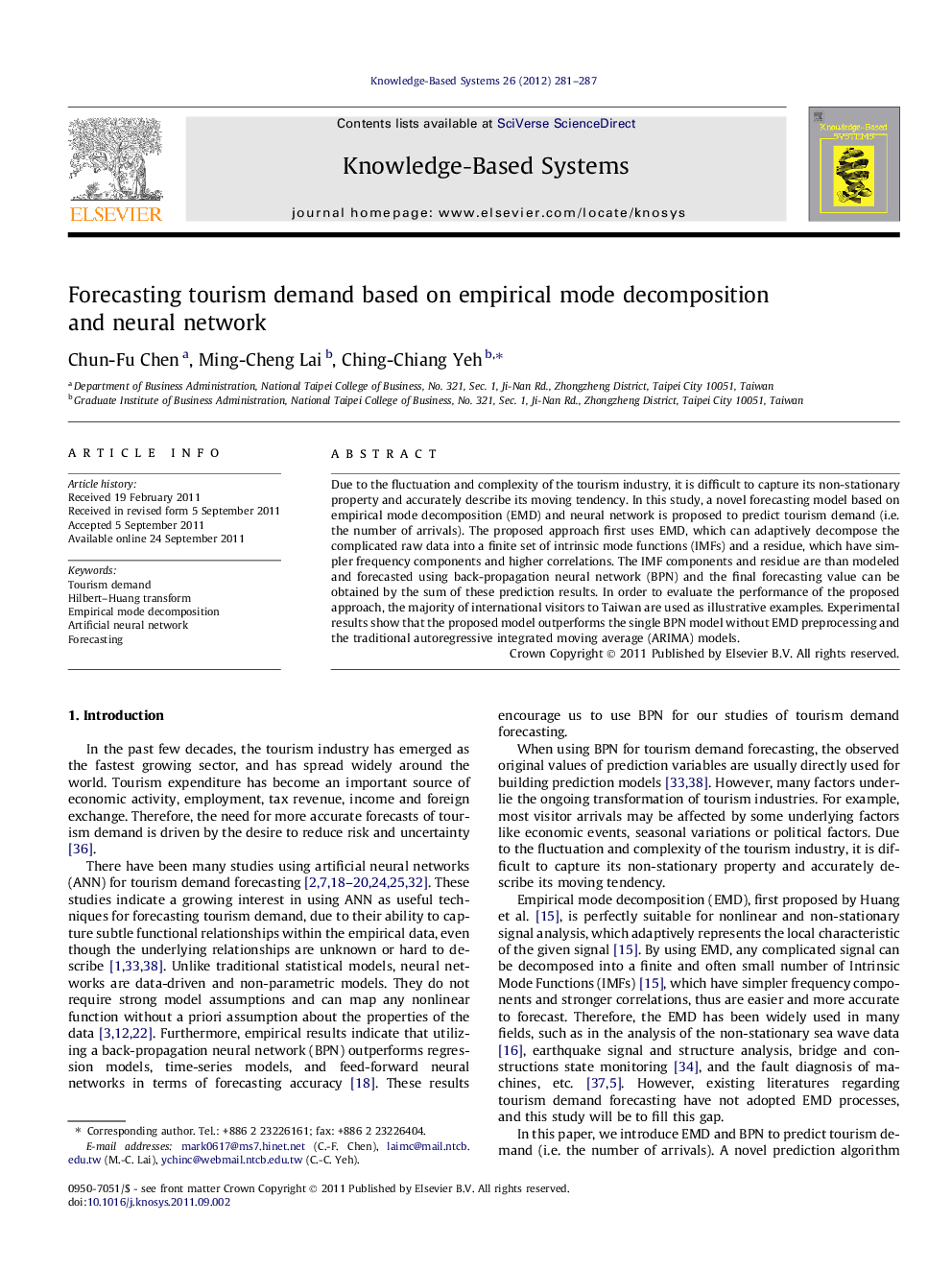| Article ID | Journal | Published Year | Pages | File Type |
|---|---|---|---|---|
| 405275 | Knowledge-Based Systems | 2012 | 7 Pages |
Due to the fluctuation and complexity of the tourism industry, it is difficult to capture its non-stationary property and accurately describe its moving tendency. In this study, a novel forecasting model based on empirical mode decomposition (EMD) and neural network is proposed to predict tourism demand (i.e. the number of arrivals). The proposed approach first uses EMD, which can adaptively decompose the complicated raw data into a finite set of intrinsic mode functions (IMFs) and a residue, which have simpler frequency components and higher correlations. The IMF components and residue are than modeled and forecasted using back-propagation neural network (BPN) and the final forecasting value can be obtained by the sum of these prediction results. In order to evaluate the performance of the proposed approach, the majority of international visitors to Taiwan are used as illustrative examples. Experimental results show that the proposed model outperforms the single BPN model without EMD preprocessing and the traditional autoregressive integrated moving average (ARIMA) models.
